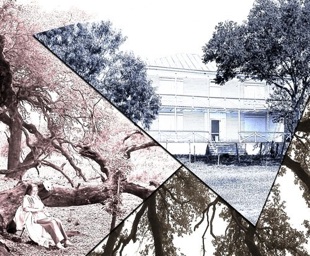
Mexico won independence from Spain in 1821, and immigrants began arriving in San Antonio de Bexar. By accepting Mexican citizenship and professing to be Catholic, U.S. immigrant settlers were allowed to possess property. The beginning of this period was marked by Anglo-American loyalty to Mexico, but in time these settlers completely disengaged their allegiances to Mexico and switched to Anglo-American identification, dominance and empathy toward the United States.
During Texas’ battle for independence, Jose Ignacio Pérez, owner of the Rancho de la Purisima Concepcion on the Media River, left his property (now Land Heritage Institute) to relocate his family to the Rio Grande river area for the duration of the revolution, leaving his property in the care of friends. Upon his return to the new Republic of Texas in 1846, he discovered that squatters had laid claim to 16,000 acres on the south bank of the Medina River that had once made up part of his 24,000 acre ranch.
To fund its fledgling government, the Republic of Texas turned to the sale of land in the public domain. Many of these new “head” or land grants overlapped earlier Spanish and Mexican land grants, including those of the Pérez family. Of seventeen land grants involving the LHI property, only four remained in the hands of Mexican families and their descendants.
During the early- and mid-1800s, the LHI property was parceled and sold to early Texas settler families including the Applewhites, the Presnalls and the Watsons. These families and their descendants worked the land, some which included the LHI property, until the land was claimed by eminent domain by the City of San Antonio for the Applewhite Reservoir Project in the early 1980s.
In the 1990s, when the Applewhite Reservoir was voted down by San Antonio citizens, the land was put in trust to the Land Heritage Institute to preserve and protect its rich natural and cultural resources. Today many descendants of the original homesteading families are working together with Land Heritage Institute to keep the property intact for future Texas generations to enjoy.

